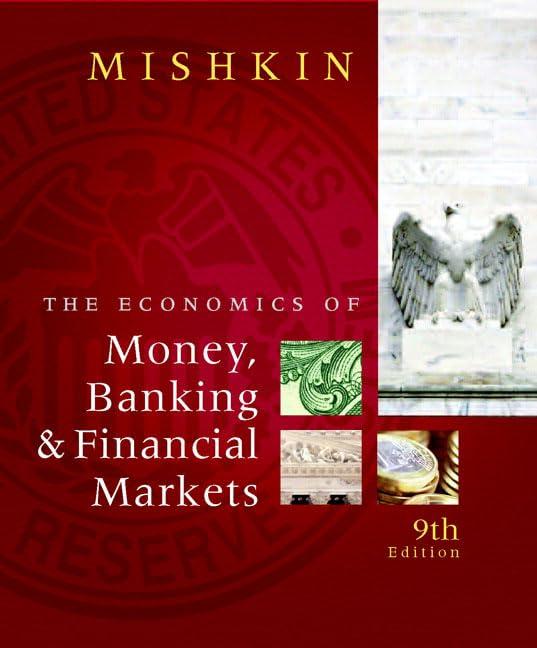Question
I need a discussion response to mt peers discussion post 1. How can you compare tulip mania from 17 th century Holland to the dot.com
I need a discussion response to mt peers discussion post
1. How can you compare tulip mania from 17th century Holland to the dot.com debacle of the 20th century from a financial point of view?
In the 17th century the tulip was traded for too high prices without thinking about the benefits. Traders would buy and sell tulips to buyers at much higher prices. As time went by the price of the tulips were falling and the merchants entered a huge loss. The dot.com debacle was in the 20th century. During that time the Internet was up and coming and people thought dot.com would be beneficial. People thought that companies who used the Internet would have a high growth. Over time companies found no benefits, many companies were lost.
2. Name and explain three ways in which the Internet revolution changed the lives of ordinary citizens.
The Internet has improved the creating of new jobs and also development. Companies hire people who are advanced in the Internet field to help keep the company up to speed. Along with allowing new jobs it has made jobs easier. Companies have gone from physically working, hand writing things to online working and programs that have made everything easier and faster. The Internet has also made buying and selling much easier. People can make purchases online and have packages delivered right to them.
3. How did the birth of online discount stock brokerages impact the Internet revolution?
When there was an introduction to online stocks is when the Internet revolution became popular. The online stock programs attracted many people which made the Internet revolution so intense.
4. If you were an investor during the dot.com revolution, and you invested primarily in technology stocks, what fundamental principle of finance did you ignore and how did it affect the value of your portfolio?
If I was an investor during the dot.com revolution the principle of cash flow was ignored, lowering costs to in return have a higher return on the investment.
5. What is diversification and what is its value for investors portfolios?
Diversification is explained as a technique that mixes a wide variety. The value for investors is that diversification maximizes the return by investing in many different areas. For example if an investment consisted of only stock issued by a single company and that stock suffered a downturn, the portfolio would sustain the full brunt of the downturn. By splitting the investment between the stocks from two different companies, you then can reduce the potential risk to the portfolio.
6. Explain the relationship between the potential return on a common stock and the risk of that stock
Risk and return is known as the potential financial gain or loss experiences through investment in securities. If the investor wants to be aggressive then high risk is the better choice. High risk will lead to a better return but can also hurt as much as it helps. High risk also is making your money liable for a huge loss. Low risk is when the investor wants to make money but doesnt want to risk too much in fear of money disappearing. Low risk has no high return nor high loss.
WC:525
References:
Tech Stocks and the 2000 Dotcom Bust: 15 Years of Wall Street Lessons. (n.d.). Retrieved July 18, 2017, from http://time.com/3741681/2000-dotcom-stock-bust/
McWhinney, J. E. (2017, March 20). Introduction to Investment Diversification. Retrieved July 18, 2017, from http://www.investopedia.com/articles/basics
RISK AND RETURN. (n.d.). Retrieved July 18, 2017, from http://www.referenceforbusiness.com/encyclopedia/Res-Sec/Risk-and-Return.html
Step by Step Solution
There are 3 Steps involved in it
Step: 1

Get Instant Access to Expert-Tailored Solutions
See step-by-step solutions with expert insights and AI powered tools for academic success
Step: 2

Step: 3

Ace Your Homework with AI
Get the answers you need in no time with our AI-driven, step-by-step assistance
Get Started


